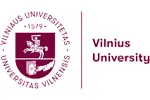The School of Biosciences is the UK's strongest teaching and research centre for fundamental and applied biological, agricultural, environmental and food sciences. Our students are taught by world-class specialists, many of whom are expert advisers to national and international bodies.
We have extensive links with companies and institutions working in the field of biosciences nationally and internationally, helping ensure our courses are relevant to industry.
Our aim is excellence in teaching and research to sustain a healthy supply of food. We study fundamental and applied animal and plant science, agricultural production; economic and environmental sustainability; food manufacturing, processing and consumption; the interaction between food, animal and human health; food safety, and the biotechnological processing of farm products.
We offer a wide choice of postgraduate qualifications, from Masters programmes with a taught element through to PhDs. Latest available graduate statistics show that 87.5% of postgraduates in the School of Biosciences who were available for employment had secured work or further study within six months of graduation. The average starting salary was £23,361 with the highest being £33,000.
The School’s credentials include:
- The school is ranked the no.1 research environment in the UK (for Agriculture, Veterinary and Food Science) in the 2014 REF (Research Excellence Framework). 97% of our work (in the Schools of Biosciences and Veterinary Medicine and Science ) was judged to be of international quality.
- Biological sciences at The University of Nottingham were given a top 15 position in The Times and Sunday Times Good University Guide 2014
- In The QS World University Rankings by Subject 2014, we achieved 34th place amongst the world’s elite institutions for agriculture and forestry, with biological sciences as a whole being ranked in the top 100
- Agriculture at The University of Nottingham was awarded 1st place in The Complete University Guide 2014, with our Food Science provision achieving 5th place and a score of 4.1 out of 5 for student satisfaction
- We are placed in the top 50 worldwide for Life and Agriculture Sciences by Academic Ranking of World Universities 2013.
The School is located on the Sutton Bonington Campus, a self-contained site in the beautiful countryside of South Nottinghamshire, ten miles south of University Park Campus. Sutton Bonington has its own teaching and research facilities and halls of residence, as well as being home to the University’s School of Veterinary Medicine and the University Farm and Dairy Centre.
The School is renowned for its supportive and friendly community environment. Some 2,000 students are currently studying on campus from all over the world. Students have access to all facilities within The University of Nottingham (including the Graduate School). Sutton Bonington is an easy bus or car journey to University Park Campus and then to Nottingham City, with free bus service connections between campuses. Two other major UK cities, Derby and Leicester are nearby. East Midlands International Airport is 7Km away, plus there are fast rail links to London close by.
The school has five research groups: Agricultural and Environmental Sciences, Animal Sciences, Food Sciences, Nutritional Sciences, and Plant and Crop Sciences.
Agricultural and Environmental Sciences
Agricultural and Environmental Sciences encompasses a broad range of interests including fundamental studies of ecosystem processes such as microbiology, soil science and geochemistry and environmental processes related to soil, air and water pollution.
Our agricultural research focuses on improving agricultural production systems, enhancing agricultural sustainability and addressing issues of food security whilst protecting the environment.
Animal Sciences
We have an international reputation for research in animal development, reproduction and biotechnology. We are world research leaders in epigenetics in the study of animals as models for human disease, reproduction, development and nutrition. Neurosciences is another of our core activities with a particular focus on the mechanisms that underpin chronic pain. Our expertise in dietary effects on animal product quality (meat, milk and oocytes) is recognised globally. The Centre for Applied Bioethics is one of the few UK Research Units focusing on animal and food ethics.
Food Sciences
Our research encompasses all levels of food and beverage production contributing to understanding and controlling quality and safety, starting with raw materials though processing to consumer preference and subsequent effects on the body. We have established industry links with large multinationals and small local manufacturers. We are internationally renowned for research on the fundamental understanding of food structure and flavour delivery and its perception.
Major research interests are: flavour science; food microbiology and safety; food structure; bioenergy. The group hosts the (BBSRC) National Centre for Macromolecular Hydrodynamics.
The Brewing Science group is a centre of excellence for brewing technologies and research, delivering education, qualifications and consultancy.
Nutritional Sciences
Nutritional Sciences is internationally renowned for research on diet and health, metabolism ageing and disease and global food security. Our core research themes are: developmental origins of disease, food allergy, prevention or utilization of food waste and efficient meat production. External collaboration with academic institutes and industrial partners promotes knowledge transfer and use of our research in clinical or commercial environments.
Our research comprises a multidisciplinary team with skills in modern molecular techniques, biochemistry, physiology, dietetics and health psychology.
Plant and Crop Sciences
Plant and Crop Sciences is internationally acclaimed as a centre for fundamental and applied research underpinning our understanding of agriculture, food production and quality, and the natural environment. Our research is centred on important crop plants including wheat, rice, brassicas and tomato. In addition, fundamental research on developmental processes uses the model plant Arabidopsis. Plant and Crop Sciences hosts the Nottingham Arabidopsis Stock Centre (NASC) and plays a major part in the Centre for Plant Integrative Biology (CPIB). We also have close research and teaching links with colleagues in the School of Biosciences at the University of Nottingham's campus in Malaysia.










